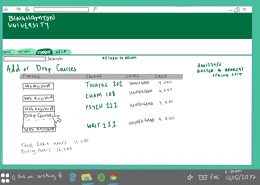
Last Friday, March 24, was the last day students were eligible to withdraw from classes. Did it come too soon for you? We think so.
It’s never an easy decision to withdraw from a class. By the time you’ve reached the point where you are willing to accept that ominous W on your transcript, you’ve already paid your dues — in time, stress and tuition. If a student feels the need to drop a class, they must make up for it later by retaking the course or taking a different one to complete their degree. We believe that it would benefit the student body to instead move the withdraw deadline to the last week of classes.
We see how pushing the deadline back this far could have implications on the way in which students think about courses. Students would no longer have to worry about having a failing class on their transcript — instead they could opt to take the W. While in many respects, failure can be a good thing, forcing students to remain in classes they are not learning from is counterproductive. Worse yet, it could be detrimental to the mental health of students and disruptive overall to a classroom’s learning environment.
It may be a deterrent to have a W on your transcript, but having one or two is generally understood on post-graduate and job applications.
Similarly, the drop period at Binghamton ends after the second week of classes. The drop date should be extended to a significantly later deadline, perhaps to the sixth week of class. Two weeks — including the typical syllabus day and introductions — is far too short a time for students to get an accurate feel for their professor, assignment materials, class dynamics and other important information about their course. The add period should remain the same — joining a class any later in a semester would be detrimental — but students should have the option to leave a course much later than that.
If, in the first few weeks of the semester, students realize that they cannot effectively learn from that class or that its subject matter is not relevant to their academic or career paths, then it is a waste of time to stay enrolled in that course. The University should not fault students for dropping a class during the third week, nor should it encourage them to stay enrolled in ineffective courses for 15 weeks.
Additionally, students should be informed about a certain percentage of their grades before the drop deadline hits. We believe it is fair for students to have a good idea about how they will perform in a class before being penalized or dropping it. If professors were required to give students an indicator of around 30 percent of their grade in a class, students would be enabled to make more efficient decisions about their education.
While we have advocated for extended withdrawal and drop periods, we support the idea of a two-week add period. Any longer would put students at a disadvantage in terms of catching up and restrict professors from meaningful and engaging instruction.
Students pay thousands of dollars to attend classes each semester, and with that should come some power of choice. Not only in the coursework that we do take, but also the courses that we don’t.


